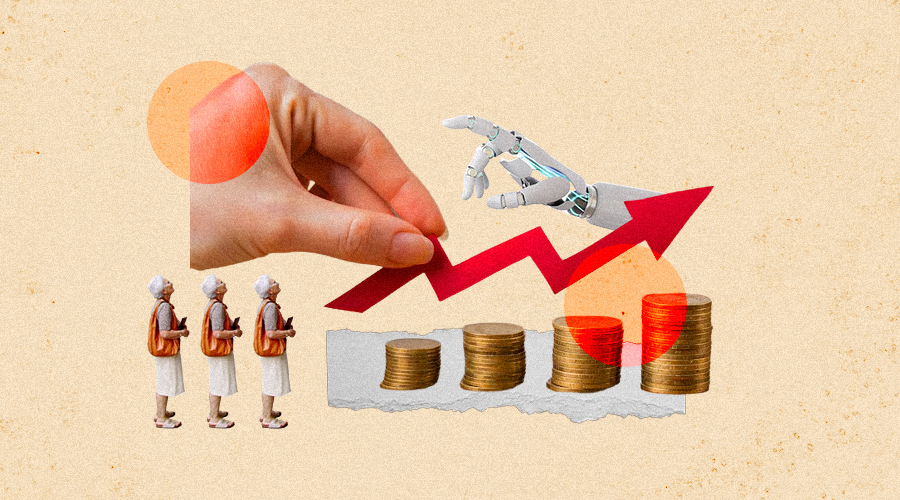Money in the Digital Age: The Fusion of Technology and Finance Redefining the Industry
In an era defined by rapid technological advancements, the financial sector finds itself at the forefront of a revolution. The convergence of technology and finance is not merely a coincidence but a deliberate and transformative fusion that is reshaping the way we understand and interact with money. This article delves into the profound impact of technology on the financial landscape, highlighting how this fusion is redefining the industry as we know it.
Digital Payments: Pioneering Convenience and Connectivity
The shift from physical to digital payments marks a pivotal change in the way transactions are conducted. The convenience offered by digital payment methods has revolutionized the everyday lives of people around the world. Mobile wallets, contactless payments, and online banking have made transactions seamless, allowing individuals to make purchases, transfer funds, and manage their finances with unprecedented ease.
This convenience, however, is just the tip of the iceberg. Digital payments also bridge geographical gaps, enabling international transactions without the limitations of traditional banking systems. The fusion of technology and finance has enabled businesses to reach global markets and consumers to access products and services from across the world with a few taps on their devices.
Blockchain Technology: Transforming Trust and Transparency
Blockchain technology, originally conceived for cryptocurrencies, has transcended its origins to become a cornerstone of the digital financial revolution. Its ability to create decentralized, tamper-proof, and transparent records of transactions has far-reaching implications for industries beyond just finance.
In finance, blockchain is eliminating the need for intermediaries, speeding up processes, reducing costs, and enhancing security. The transparency offered by blockchain addresses longstanding issues of trust in financial transactions. Every transaction is recorded in an unchangeable digital ledger, visible to all participants, thereby minimizing the potential for fraud or manipulation.

Fintech Innovation: Customizing Financial Experiences
Fintech, an amalgamation of “finance” and “technology,” has given birth to innovative solutions that cater to individual needs and preferences. Personalized financial experiences are becoming the norm, driven by advanced algorithms and AI-powered analytics that analyze vast amounts of data to offer tailored insights and recommendations.
Robo-advisors, for instance, provide automated investment advice, democratizing wealth management and making it accessible to a wider audience. Peer-to-peer lending platforms connect borrowers with lenders directly, simplifying the lending process and expanding access to credit.
Digital Currencies: A Paradigm Shift in Monetary Systems
Perhaps the most emblematic embodiment of the fusion of technology and finance is digital currencies. Cryptocurrencies like Bitcoin, Ethereum, and others have ignited conversations about the future of money. These decentralized digital assets are challenging the very concept of traditional currencies issued and regulated by governments.
While cryptocurrencies continue to be a subject of speculation and debate, central banks are exploring the creation of central bank digital currencies (CBDCs). These digital versions of national currencies are poised to streamline transactions, reduce costs, and enhance financial inclusion. The fusion of technology and finance is driving a shift in monetary systems, opening up new possibilities for how economies function.
Challenges and Opportunities
The fusion of technology and finance is not without its challenges. Data security, regulatory compliance, and the potential for increased inequality are all valid concerns. Rapid technological changes may outpace regulatory frameworks, leading to ethical and legal dilemmas that need to be addressed collectively.
However, these challenges come hand in hand with immense opportunities. Financial services are becoming more inclusive, efficient, and tailored to individual needs. The fusion of technology and finance is democratizing access to financial tools, making it possible for more people to participate in the economy and shape their financial futures.
Conclusion: Pioneering a New Financial Landscape
The fusion of technology and finance is a force that is redrawing the contours of the financial industry. From reshaping payment methods to redefining trust in transactions and reimagining the very nature of money, this fusion is creating a new financial landscape that is more interconnected, accessible, and innovative than ever before.
As this fusion continues to evolve, stakeholders across the spectrum must collaborate to navigate the challenges and seize the opportunities presented by this digital age. By embracing the fusion of technology and finance, we are not only redefining the industry but also paving the way for a more inclusive and empowered financial future.
